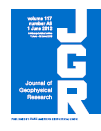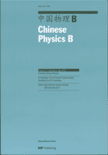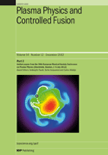
PHYSICS OF PLASMAS
Scope & Guideline
Exploring the Dynamics of Plasma Physics
Introduction
Aims and Scopes
- Plasma Physics Fundamentals:
Research addressing the fundamental principles governing plasma behavior, including kinetic theory, magnetohydrodynamics (MHD), and wave-particle interactions. - Fusion Energy Research:
Studies focused on the behavior of plasmas in fusion devices, including inertial confinement fusion (ICF), magnetic confinement, and the dynamics of fusion reactions. - Plasma Diagnostics and Measurement Techniques:
Development and application of diagnostic tools for measuring plasma parameters such as density, temperature, and flow, critical for advancing plasma science. - Nonlinear Plasma Dynamics:
Investigations into nonlinear phenomena in plasmas, including instabilities, turbulence, and wave interactions that can impact plasma confinement and stability. - Applications of Plasma Technology:
Research on practical applications of plasma technology in various fields, such as materials processing, environmental science, and medical therapies. - Astrophysical and Space Plasmas:
Studies that explore plasma behavior in astrophysical contexts, including solar and space plasma phenomena, and their implications for space weather and cosmic events.
Trending and Emerging
- Machine Learning and Data-Driven Approaches:
An increasing number of studies are utilizing machine learning techniques to analyze plasma behavior and optimize experimental designs, indicating a trend towards integrating computational methodologies with traditional plasma physics. - High-Energy-Density Physics:
Research focusing on high-energy-density plasmas, particularly in the context of inertial confinement fusion and astrophysical phenomena, is becoming increasingly prominent as experimental capabilities expand. - Plasma-Material Interaction Studies:
As applications of plasmas in material processing grow, there is a rising interest in understanding the interactions between plasmas and various materials, particularly in the context of fusion reactors and advanced manufacturing technologies. - Nonlinear and Turbulent Plasma Dynamics:
There is a growing body of work addressing nonlinear effects and turbulence in plasmas, particularly in fusion devices, as researchers aim to understand and mitigate instabilities that affect confinement. - Astrophysical Plasma Phenomena:
Research exploring plasma processes in astrophysical contexts, such as solar flares and cosmic rays, is on the rise, reflecting a broader interest in understanding space weather and its impacts on Earth.
Declining or Waning
- Dusty Plasma Studies:
Research on dusty plasmas has become less prominent, possibly due to the maturation of this field and the increased focus on more complex plasma systems that integrate multiple species and conditions. - Low-Temperature Plasma Applications:
While low-temperature plasmas remain important, the volume of research published in this area has waned, as more attention is drawn to high-energy-density plasmas and their applications in fusion and astrophysics. - Classical Plasma Theory:
There has been a noticeable shift towards more complex and computationally intensive models that incorporate non-ideal effects, leading to a decline in publications focused solely on classical plasma theories.
Similar Journals

Plasma and Fusion Research
Igniting Innovation in Plasma and Fusion ResearchPlasma and Fusion Research is a pivotal journal within the realm of plasma science and nuclear fusion, published by the Japan Society of Plasma Science and Nuclear Fusion Research. With an ISSN of 1880-6821, this journal serves as a vital platform for disseminating significant research findings and advancements from Japan and around the globe. Operating since 2006, it has steadily contributed to the field, reflected in its recognition as a Q3 journal in Condensed Matter Physics for the year 2023 and its ranking of #383 out of 434 in the Scopus categories, placing it in the 11th percentile. Although it currently does not offer open access, the journal's commitment to quality research makes it essential reading for researchers, professionals, and students keen on exploring the complexities of plasma dynamics, fusion technology, and their applications in energy production. Situated in Nagoya, Japan, the journal fosters a collaborative environment aimed at pushing the boundaries of knowledge in plasma physics and enhancing the understanding of fusion processes.

PRAMANA-JOURNAL OF PHYSICS
Connecting Scholars through Groundbreaking Physics ResearchPRAMANA-JOURNAL OF PHYSICS, published by the esteemed Indian Academy of Sciences, serves as a pivotal platform for disseminating high-quality research in the field of Physics and Astronomy. Established in 1973, this journal aims to promote significant findings in various branches of physics, encapsulating both theoretical and experimental research. With a solid reputation reflected in its Q2 ranking in the Physics and Astronomy (miscellaneous) category and a commendable 94/243 rank in the Scopus database, PRAMANA stands at the forefront of the academic community. Researchers, professionals, and students benefit from its accessible compilation of innovative studies, contributing richly to the scholarly discourse. The journal, operating from its base in Bangalore, India, is committed to advancing knowledge through rigorous peer-reviewed articles, ensuring that all contributions hold merit in expanding our understanding of the physical world.

JOURNAL OF GEOPHYSICAL RESEARCH-SPACE PHYSICS
Exploring the Frontiers of Earth and Space InteractionsJOURNAL OF GEOPHYSICAL RESEARCH-SPACE PHYSICS, published by the American Geophysical Union, stands as a pivotal academic platform dedicated to the dissemination of cutting-edge research in the fields of geophysics and space physics. With an impressive impact factor and recognition as a Q1 journal in Geophysics and Q2 in Space and Planetary Science as of 2023, this journal offers an esteemed venue for researchers seeking to publish high-quality studies that advance our understanding of the interactions between the Earth and space environment. The journal features comprehensive coverage of topics spanning from the ionosphere to magnetosphere, facilitating insights critical for both academic and applied sciences. Researchers, professionals, and students will find that this journal not only presents rigorous peer-reviewed articles but also encourages the accessibility of scientific knowledge, enhancing collaboration across disciplines. With its dedicated readership and influence in the scientific community, JOURNAL OF GEOPHYSICAL RESEARCH-SPACE PHYSICS plays an essential role in fostering innovations within these dynamic fields.

BRAZILIAN JOURNAL OF PHYSICS
Connecting Researchers to the Heart of PhysicsBRAZILIAN JOURNAL OF PHYSICS, published by SPRINGER, is a prominent platform dedicated to the dissemination of research within the realm of physics and astronomy. With an ISSN of 0103-9733 and E-ISSN of 1678-4448, this esteemed journal has been contributing to the field since its inception in 1996, and it continues to be pivotal in showcasing innovative studies and breakthroughs. The journal is categorized in the Q4 quartile for the year 2023, reflecting a dedicated focus on advancing knowledge across a variety of disciplines, particularly in general physics and astronomy, where it ranks 126th out of 243 in Scopus rankings. Although it currently does not operate under an open-access model, it remains an invaluable resource for researchers, professionals, and students eager to enhance their understanding of complex physical principles and developments. The journal is committed to promoting high-quality research, bridging gaps in knowledge, and fostering collaboration within the global physics community.

Chinese Physics B
Exploring the depths of physics with open access insights.Chinese Physics B, published by IOP Publishing Ltd, is a distinguished journal in the field of Physics and Astronomy, offering a platform for researchers to disseminate cutting-edge studies and advancements. With an ISSN of 1674-1056 and an E-ISSN of 2058-3834, this journal emphasizes open access, ensuring that groundbreaking research is readily available to a global audience. Reflecting its commitment to quality, Chinese Physics B is categorized in the Q3 quartile (2023) in its subject area and ranks 118 out of 243 among its peers in general physics and astronomy according to Scopus, placing it in the 51st percentile. Publishing since 2008, the journal not only maintains a rigorous peer-review process but also aims to foster collaboration among academics in various physics disciplines. With its base in the United Kingdom, Chinese Physics B remains a crucial resource for those seeking to stay abreast of developments in the diverse world of physics.

DOKLADY PHYSICS
Unveiling the Complexities of Physical Phenomena.DOKLADY PHYSICS is a prominent academic journal dedicated to advancing knowledge in the fields of computational mechanics, mechanics of materials, and general physics and astronomy. Published by MAIK NAUKA/INTERPERIODICA/SPRINGER, this journal has established itself as a crucial resource for researchers and professionals keen on exploring the intricacies of physical phenomena and engineering applications. With its ISSN 1028-3358 and E-ISSN 1562-6903, DOKLADY PHYSICS has been contributing to scientific discourse since its inception in 1996 and continues to provide a platform for innovative research up to 2023. Despite its current Q3 ranking in several key categories, the journal maintains an inclusive approach, striving to influence both academic and practical aspects of its fields. While the journal may not be open access, it remains a vital publication for those interested in high-quality research, as reflected in its Scopus ranking positions across various engineering and physics categories.

PLASMA CHEMISTRY AND PLASMA PROCESSING
Connecting Researchers to the Pulse of Plasma TechnologyPLASMA CHEMISTRY AND PLASMA PROCESSING, published by SPRINGER, is a premier journal dedicated to advancing the field of plasma chemistry and its applications in processing technologies. Established in 1981, this journal has attained a strong impact in its field, reflecting its Q2 rankings in several categories including Chemical Engineering, Chemistry, and Condensed Matter Physics. It serves as a crucial platform for researchers, professionals, and students aiming to explore innovative plasma-based techniques and solutions for diverse applications, including materials synthesis and surface engineering. Through rigorous peer-reviewed articles and comprehensive studies, this journal underscores the significance of plasma processes in contemporary scientific and industrial landscapes, fostering knowledge exchange and emerging trends up to the year 2024. With its strategic focus on cutting-edge research, PLASMA CHEMISTRY AND PLASMA PROCESSING remains an essential resource for those committed to the enhancement and evolution of plasma technologies.

JOURNAL OF FUSION ENERGY
Connecting researchers to the future of fusion technology.The Journal of Fusion Energy, published by Springer, stands as a significant platform for advancing the field of nuclear energy and high-energy physics. With an ISSN of 0164-0313 and an E-ISSN of 1572-9591, this journal has been pivotal for researchers since its inception, tracking the latest innovations and research breakthroughs from 1981 to 1983 and continuing its legacy from 1985 to 2024. Recognized as a Q2 journal in both the Nuclear and High Energy Physics and Nuclear Energy and Engineering categories for 2023, it boasts a respectable Scopus ranking that places it among the top journals in its field—ranking #37 out of 77 in Nuclear Energy and Engineering and #50 out of 87 in Physics and Astronomy. Although it does not offer open access options, the journal remains a crucial resource for professionals, researchers, and students striving to stay informed on the pivotal developments in fusion energy research. Its comprehensive articles are designed to engage the academic community, paving the way for new paradigms in energy production and sustainability.

PLASMA PHYSICS AND CONTROLLED FUSION
Leading the Charge in Plasma Science and Nuclear EngineeringPLASMA PHYSICS AND CONTROLLED FUSION is a leading academic journal published by IOP Publishing Ltd that focuses on advancing the understanding of plasma physics and its applications in the field of controlled fusion. Established in 1984, this prestigious journal has earned a significant reputation, demonstrated by its Q1 rankings in both Condensed Matter Physics and Nuclear Energy and Engineering for 2023, alongside impressive Scopus rankings placing it in the 79th percentile in its category. The journal serves as an essential platform for researchers, professionals, and students seeking to stay abreast of cutting-edge developments in plasma behavior, fusion technologies, and theoretical frameworks. While it does not currently offer open access options, the journal's rigorous peer-review process ensures the dissemination of high-quality research that is crucial for the advancement of nuclear energy solutions and the broader field of physics. With its commitment to fostering innovative research and development, PLASMA PHYSICS AND CONTROLLED FUSION is a vital resource for those passionate about the future of energy and scientific exploration.

CHINESE PHYSICS LETTERS
Connecting Theory and Experiment in PhysicsChinese Physics Letters is a prestigious journal published by IOP Publishing Ltd, based in the United Kingdom. Since its inception in 1984, the journal has served as a vital platform for disseminating impactful research in the field of physics, achieving a noteworthy Q1 ranking in the category of Physics and Astronomy (miscellaneous) as of 2023. Renowned for its rapid publication process, this journal is dedicated to providing a forum for high-quality, concise articles that address innovative theoretical and experimental findings relevant to both the academic community and industry practitioners. With an impressive Scopus rank of #52 out of 243, placing it in the 78th percentile, Chinese Physics Letters continues to influence the global physics landscape. Researchers, professionals, and students alike find this journal indispensable for staying abreast of the latest developments and trends in physics.